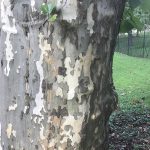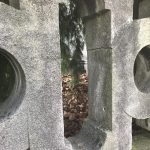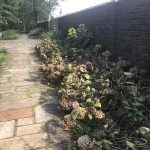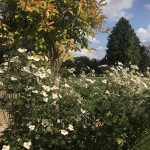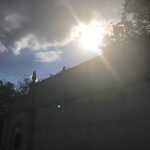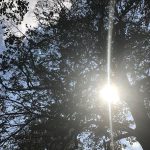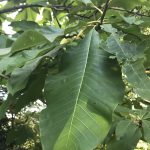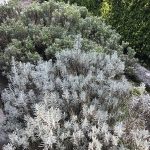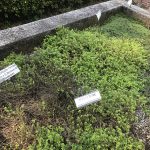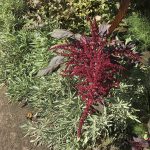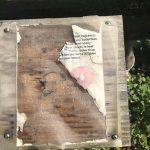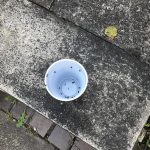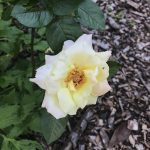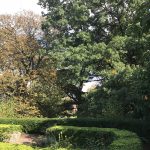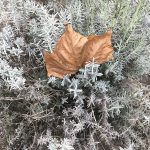you’re a mean one, mr. grinch
Something is wrong.
I’m not sure what. I feel a bit like the Grinch, who hated Christmas but no one knew why. (“It could be, perhaps, that his shoes were too tight. It could be his head wasn’t screwed on just right. But I think that the most likely reason of all may have been that his heart was two sizes too small.”) My undershirt is abnormally tight today, and it’s mid-afternoon and it’s hot and humid, and the sun’s beating down on us like it’s trying to tenderize two pieces of meat. I’ve got a lot on my mind, from insufficient finances through health problems to a sort of crescendoing panic from the seemingly insurmountable load of school-related work I have piling up this semester.
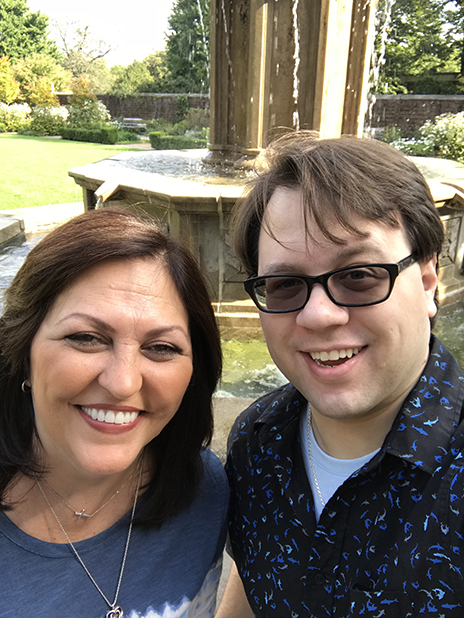 Perhaps it’s the confluence of all these various problems. Perhaps not. But whatever the reason, I don’t feel right as I walk through Mellon Park’s Walled Garden. I’ve brought my mother along, as she came down to visit today. Perhaps she’s part of the problem, too: It’s hard to lose yourself when yourself is always with someone else. And I’d like to lose myself today. I expected to lose myself today. The last two times I’ve come to the Walled Garden, I felt transported out of my reality — or perhaps not transported, really. It felt more as if time froze for me while I was there, as if all the stresses of “real life” had been put on ice, if only for a little while. Between the heat and the mess on my mind right now, I could use some ice.
Perhaps it’s the confluence of all these various problems. Perhaps not. But whatever the reason, I don’t feel right as I walk through Mellon Park’s Walled Garden. I’ve brought my mother along, as she came down to visit today. Perhaps she’s part of the problem, too: It’s hard to lose yourself when yourself is always with someone else. And I’d like to lose myself today. I expected to lose myself today. The last two times I’ve come to the Walled Garden, I felt transported out of my reality — or perhaps not transported, really. It felt more as if time froze for me while I was there, as if all the stresses of “real life” had been put on ice, if only for a little while. Between the heat and the mess on my mind right now, I could use some ice.
I walk around the Walled Garden, pointing out to my mom the squirrels running through the grass, showing her the weeping pine that took me back two weeks ago to better times with my cousin. I show her the turtle fountain, usually the star of a majority of the pictures I take on each trip here. I snap a few shots, including one of me and my mom, but I feel none of the usual joy, the usual freedom. My shirt feels even tighter, the heat is cloying, and the fountain feels it too. Its water rushes too quickly, overflows the base, splashes wildly off each tier. A drop cannonballs into my mouth and I panic, blowing raspberries and scraping my tongue to cleanse it of any exotic diseases living in this backyard fountain. I know it’s irrational, I know it’s nonsensical, but I do it anyway. It’s just the mood I’m in.
“Let’s go,” I say to my mom, who has been watching my outburst. She doesn’t say anything about it, though; she knows me too well and is used to my intricacies. Later in the day, over dinner, we’ll talk about how when I was in kindergarten, I had to have two slices of French toast each morning before school, cut exactly into a 3×3 grid of equal parts, with just the right ratio of butter and syrup or I wouldn’t eat it. “That sounds like me,” I say. A minute passes, and I add, “You know, back then, all that was cute, but now–” She cuts me off, finishes for me, “Yeah, but now you’d have got diagnosed.” I nod in agreement, not sure whether I should be glad or bitter.
We walk to the Rose Garden, just a few yards away from the Walled Garden. I came here on my first visit to the park, but haven’t been here since that day in early September. I’m not sure why I’ve decided to come here today. That first time left a bad taste in my mouth: the garden was rundown, weeds had overtaken many of the plants, the informative placards were waterlogged and ripped. It felt deserted, despite being a fixture in a well-traveled park in the middle of an affluent neighborhood of a large American city. I didn’t like it, largely because I wanted to like it but felt as if I couldn’t.
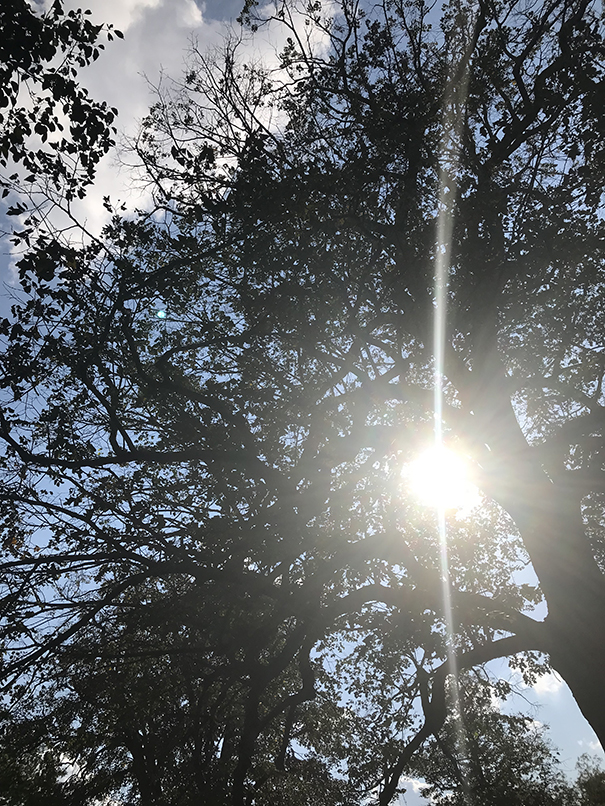 A few feet into the garden, my mother beelines to a picnic table and sits down. “I’ll wait here,” she says. I nod and look up at the enormous trees shading the small clearing. I hear an animal, probably a bird, though it sounds like some sort of monkey laughing at me. The sun blinds me through the branches, and I can’t sight the riotous bird. I take a picture anyway and wander off, meandering along the paths that lead to the various segments of the Rose Garden. Each chunk of land has a theme — Shakespeare’s garden, for instance, with plants mentioned in his plays, or a fragrance garden. But today is no better than that first day. Everything is dead or dying. Weeds choke back the plants; half the time, I can’t decide if I’m looking at something planted intentionally or not. There’s a plastic cup on the stairs, and it’s filled with ants. I walk to a placard, and the information has been ripped away by wind and rain, as if Nature is too shy to have her secrets revealed so easily. (Perhaps, I also think, she’s not shy — she’s mad.)
A few feet into the garden, my mother beelines to a picnic table and sits down. “I’ll wait here,” she says. I nod and look up at the enormous trees shading the small clearing. I hear an animal, probably a bird, though it sounds like some sort of monkey laughing at me. The sun blinds me through the branches, and I can’t sight the riotous bird. I take a picture anyway and wander off, meandering along the paths that lead to the various segments of the Rose Garden. Each chunk of land has a theme — Shakespeare’s garden, for instance, with plants mentioned in his plays, or a fragrance garden. But today is no better than that first day. Everything is dead or dying. Weeds choke back the plants; half the time, I can’t decide if I’m looking at something planted intentionally or not. There’s a plastic cup on the stairs, and it’s filled with ants. I walk to a placard, and the information has been ripped away by wind and rain, as if Nature is too shy to have her secrets revealed so easily. (Perhaps, I also think, she’s not shy — she’s mad.)
I pass a small patch of herbs, and I bend down to see what they are. They’re thyme, all sorts of varieties of thyme. Elfin thyme, caraway thyme, woolly thyme. My mind puns immediately, and I think how here are all the different kinds of time, right here planted for me to see, and none of them are the frozen thyme I’ve been missing this trip through the gardens.
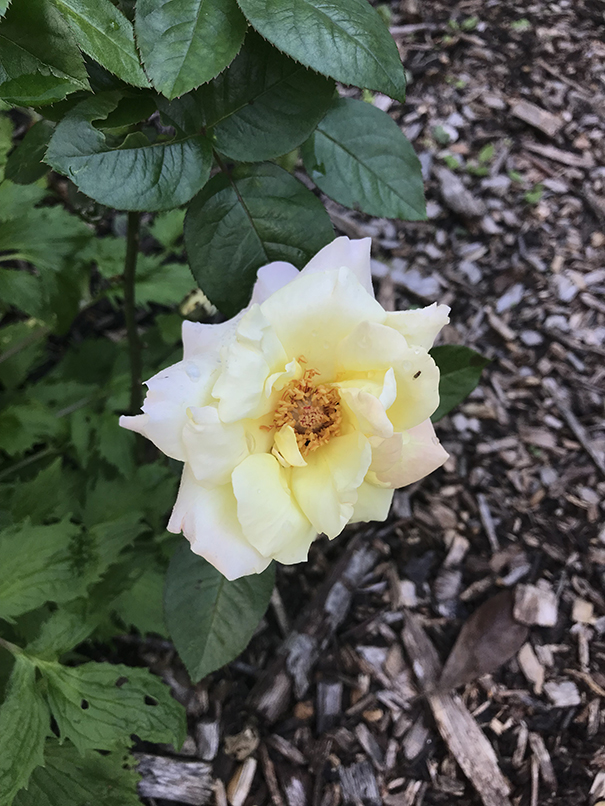 I see one flower. Its petals are faded yellow tattered edges; its center is dried up, verging on withered. I take a picture anyway, because it’s the one flower I’ve seen in this rose garden. I try to identify it, but the cards are placed badly, and I can’t tell if this flower belongs to that card, this card, or that card over there, so I give up. A few steps away, I try to take a picture of a fat bumblebee hovering over a patch of flower corpses, but it won’t stand still — probably because the flowers are all dead and the bee isn’t a necrophiliac — and I’m allergic anyway, so I don’t get too close. This trip, I decide, is a bust, and I walk back to my mom, passing the ant-filled cup, the dead and dying plants, the derelict placards. Within minutes, we’re back in our car, heading to Walnut Street, where we’ll eat dinner, talk about my neuroses, and drive home.
I see one flower. Its petals are faded yellow tattered edges; its center is dried up, verging on withered. I take a picture anyway, because it’s the one flower I’ve seen in this rose garden. I try to identify it, but the cards are placed badly, and I can’t tell if this flower belongs to that card, this card, or that card over there, so I give up. A few steps away, I try to take a picture of a fat bumblebee hovering over a patch of flower corpses, but it won’t stand still — probably because the flowers are all dead and the bee isn’t a necrophiliac — and I’m allergic anyway, so I don’t get too close. This trip, I decide, is a bust, and I walk back to my mom, passing the ant-filled cup, the dead and dying plants, the derelict placards. Within minutes, we’re back in our car, heading to Walnut Street, where we’ll eat dinner, talk about my neuroses, and drive home.
